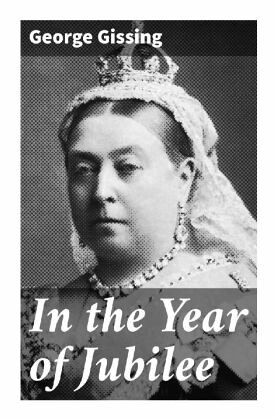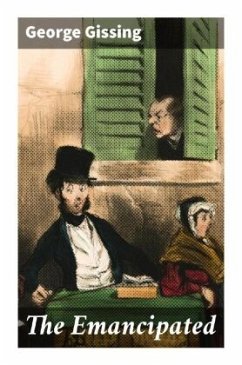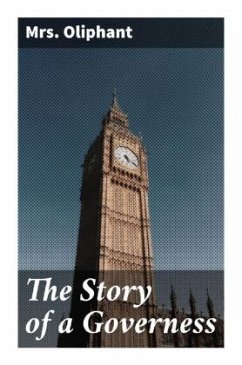
In the Year of Jubilee
Versandkostenfrei!
Versandfertig in 6-10 Tagen
10,99 €
inkl. MwSt.

PAYBACK Punkte
5 °P sammeln!
In George Gissing's novel "In the Year of Jubilee," the narrative unfolds in the vibrant backdrop of late 19th-century England, examining the complex themes of social class, reform, and personal aspiration. Gissing employs a rich, realist literary style that dissects the lives of his characters with psychological depth and acute social observation. At the heart of the story lies the character of J.T. Mangan, a working-class man who aspires to rise above his station, offering readers a poignant exploration of the era's societal constraints and burgeoning modernity, showcasing Gissing's masterfu...
In George Gissing's novel "In the Year of Jubilee," the narrative unfolds in the vibrant backdrop of late 19th-century England, examining the complex themes of social class, reform, and personal aspiration. Gissing employs a rich, realist literary style that dissects the lives of his characters with psychological depth and acute social observation. At the heart of the story lies the character of J.T. Mangan, a working-class man who aspires to rise above his station, offering readers a poignant exploration of the era's societal constraints and burgeoning modernity, showcasing Gissing's masterful ability to intertwine personal ambition with broader societal commentary. George Gissing, a prominent figure of Victorian literature, drew on his experiences of poverty and social upheaval in his own life, often depicting the struggles of the working class. His familiarity with the literary movements of his time and his own hardships undoubtedly shaped his perspective on society, giving him the impetus to illuminate the stark realities faced by individuals seeking to break free from class limitations. Gissing's profound empathy for his characters is a hallmark of his narrative style, creating a sense of connection with the reader. This book is highly recommended for readers interested in the intricate interplay of ambition and societal structures in Victorian England. Gissing's insightful prose and well-crafted characters provide not only an engaging narrative but also a thought-provoking commentary on class and identity, making "In the Year of Jubilee" a significant work for anyone intrigued by social realism and the literary exploration of human resilience.












